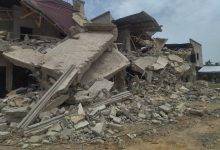
The Public Utilities Regulatory Commission (PURC) has increased the average end-user tariff for electricity by 18.36 per cent across board for all customer groups, effective June 1, 2023.
The commission has also approved a Weighted Average Cost of Gas (WACOG) of GH¢82.84.
Dr Ishmael Ackah, Executive Secretary of the PURC, made this known in the Commission’s release on its 2023 second-quarter tariff review decision for natural gas and electricity, copied to the Ghanaian Times in Accra on Wednesday.
He explained that the Commission considered factors including the Ghana Cedi/US Dollar exchange rate, inflation, electricity generation mix and the weighted average cost of natural gas in arriving at its decision.
Dr Ackah indicated that the new electricity tariff, effective February 1, 2023, for lifeline customers was 64GHp/kWh; 136GHp/ kWh for residential customers and 128.8GHp/KWh for non-residential customers.
For Special Load Tariff (SLT) customers, he indicated that the energy charge for low voltage customers was 203.9GHp/ kWh;154.8GHp/kWh for medium voltage customers and 162.5GHp/ kWp for high voltage customers.
Energy charge for High Voltage Steel Companies will be 114.6GHp/kWp while High Voltage mines will be 406GHp/kWp.
Dr Ackah said the key variables underlying the rate setting had changed significantly since the announcement of the tariff in January, this year.
“The weighted average Ghana Cedi/US Dollar exchange rate used for the first quarter tariff review was GH¢10.5421 to the US Dollar. Since then, the Ghana Cedi has depreciated against the US Dollar. The projected exchange rate for the second quarter plus the first quarter under-recovery is GH¢12.7118 to the US Dollar,” he stated.
Dr Ackah said the first quarter tariff decision resulted in a 25 per cent under-recovery of the exchange rate, adding “This has to be recovered in order to ensure that the country does not add to the already mounting debt in the energy sector.”
He said the review had become necessary to maintain the real value of cost of supply of the utility services and to ensure that the utility companies do not under or over recover costs.
“While under recovery has negative implications for the ability of the companies to supply service to consumers, and has the potential of causing outages of electricity, over-recovery unnecessarily overburdens consumers of electricity,” he added.
Dr Ackah said the PURC was very mindful of the current economic circumstances, so, it sought to balance prevention of extended power outages and its adverse implications on jobs and livelihoods, while minimising the impact of rate increases on consumers.
He commended stakeholders for their support as it continues to implement quarterly tariff reviews in accordance with its Rate Setting Guidelines for Quarterly Review of Natural Gas, Electricity and Water Tariffs.
“In doing so, the Commission will continue to equitably balance the interests of the Utility Service providers and consumers and hold service providers to strict adherence to regulatory standards and benchmarks,” he added.
Meanwhile the PURC in January, this year increased the average end-user tariffs for electricity by 29.96 per cent and water by 8.3 per cent, effective February 1, 2023.
The commission has also ap¬proved a Weighted Average Cost of Gas (WACOG) of GH¢ 64.
BY ABIGAIL ARTHUR






